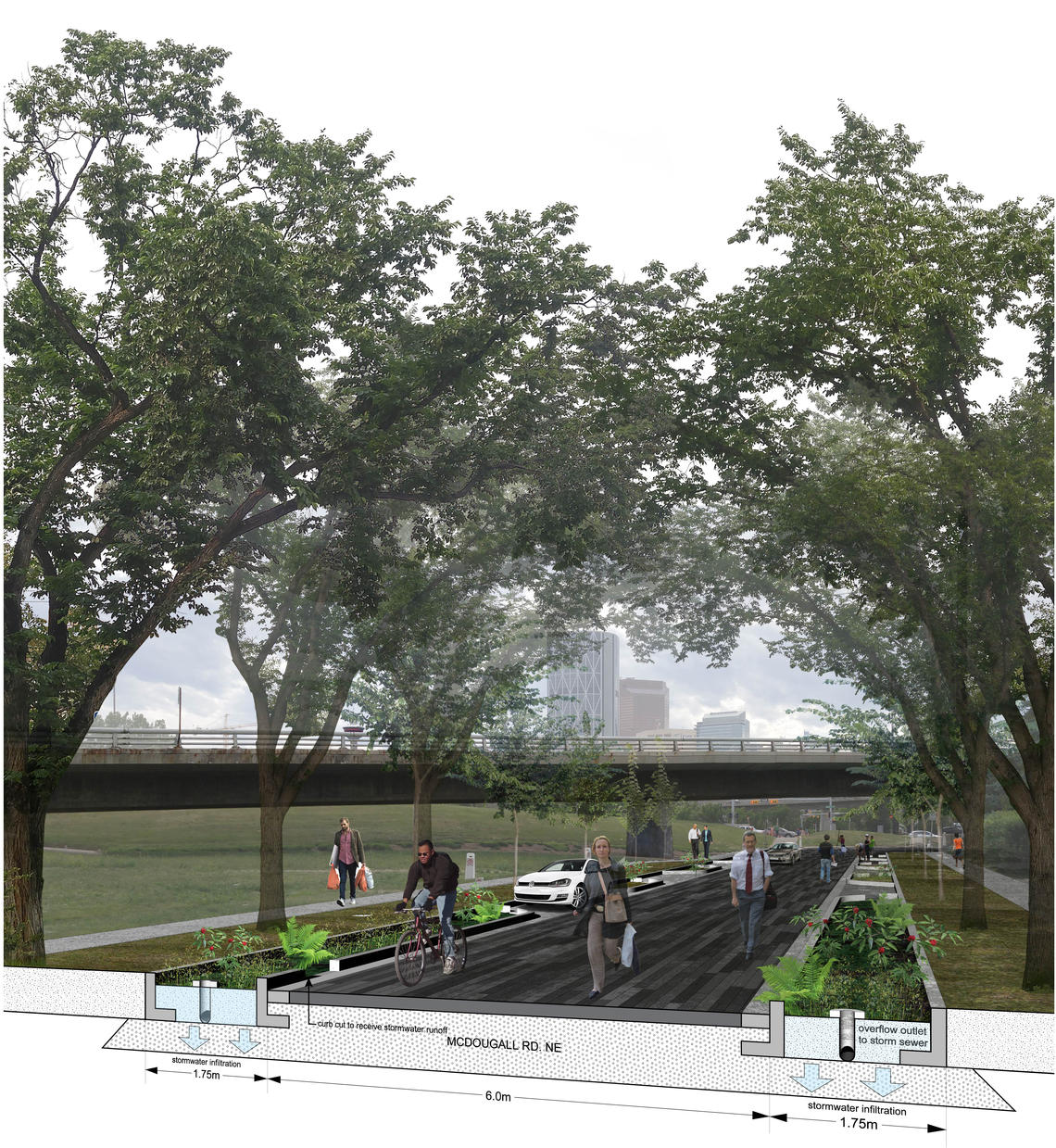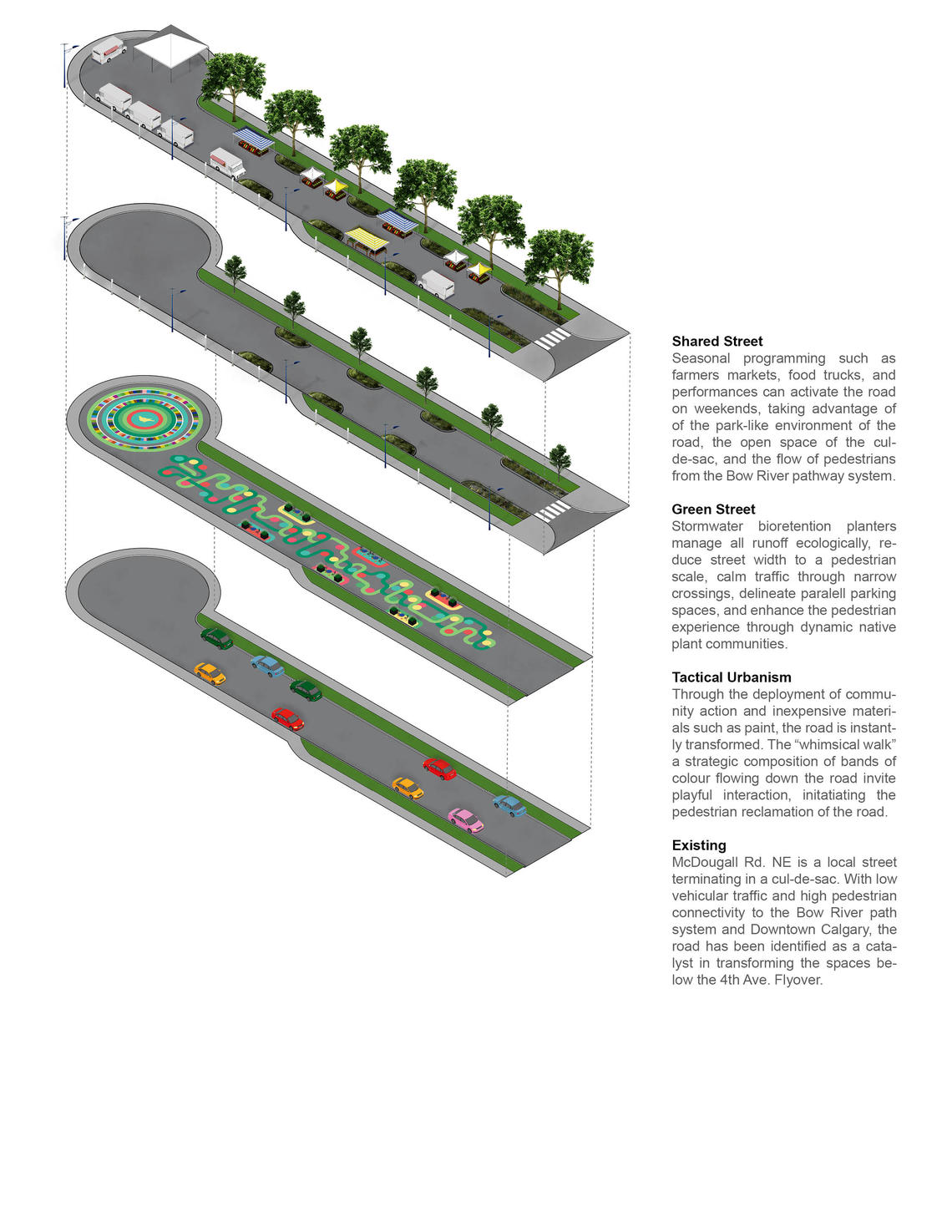Aug. 9, 2017
Boldly painted street under downtown flyover sets community on new course

If you happen to find yourself walking or biking toward the Bow River pathways from Bridgeland on McDougall Road N.E., you will come across bright circles, polka dots and other colourful graphics painted on the street, inviting you to stay and maybe play awhile.
The “whimsical walk” painted on the asphalt in the street and cul-de-sac underneath the Fourth Avenue Flyover is the result of University of Calgary Master of Landscape Architecture students collaborating with the Bridgeland Riverside Community Association, Grade 6 students at Bridgeland’s Langevin School, and officials with the City of Calgary’s Pedestrian Strategy.
The Faculty of Environmental Design students led the elementary students in a design charrette about “play” and they held an open house in Bridgeland to get feedback from the community on different ideas to revitalize the underused space.

A design projection of McDougall Road N.E. as a shared street.
While EVDS students’ semester ended in April, students Benjamin Hettinga and Juliana Morar kept working with their instructor Tawab Hlimi, an assistant professor in landscape architecture at EVDS to produce a design concept incorporating popular ideas.
“One of the challenges of designing for this space was balancing all the different priorities of the stakeholders,” says Hettinga. “The community wanted a welcoming entrance, more vegetation, lighting and public art. The City wanted a space to encourage people to be outside and active, reinforce existing routes and paths, was safe and easy to maintain."
That plan was approved by Calgary Planning Commission on June 15 and the paint hit the pavement June 26, an example of tactical urbanism. “Tactical urbanism deploys community action and inexpensive materials to test out design ideas with relative immediacy,” says Hlimi. “In this case, we instantly subverted the road from vehicular realm to pedestrian corridor.”
But the fun and colourful graphics on the road are just the beginning of trying to reclaim the street for the steady stream of pedestrians heading to the river pathways. “The graphics are intended to build momentum and garner political and financial support for a longer‐term and more grounded public space transformation,” he says.

The projected evolution of McDougall Road N.E. from vehicular corridor to shared street.
If you look closely at the fun colours on the ground, you’ll also find codes that give the locations and dimensions of potential future design interventions. “We’re hoping to introduce stormwater bioretention planters,” says Hlimi. The planters, which would be full of different colours and textures of native plants, would run on each side of the street, reducing its width and to a pedestrian scale and helping make it more walkable.
“The Fourth Avenue Flyover aspires to be become a model for the integration of sustainable stormwater management as a strategy in the social and ecological reclamation of marginalized spaces of transportation infrastructure,” says Hlimi.
The Fourth Avenue Flyover project will be discussed at the Walk21 Calgary conference hosted by UCalgary Sept. 19-22.
